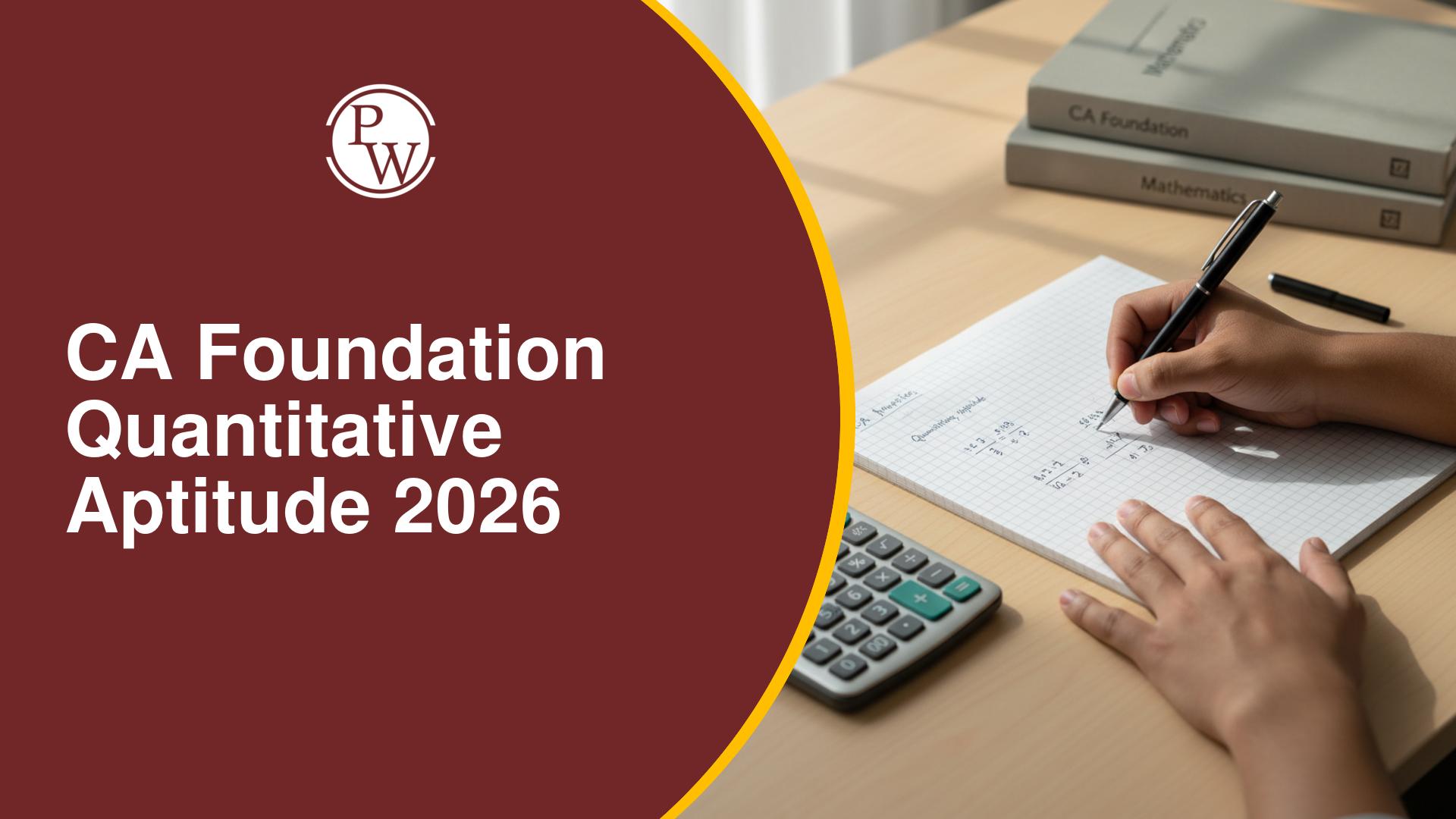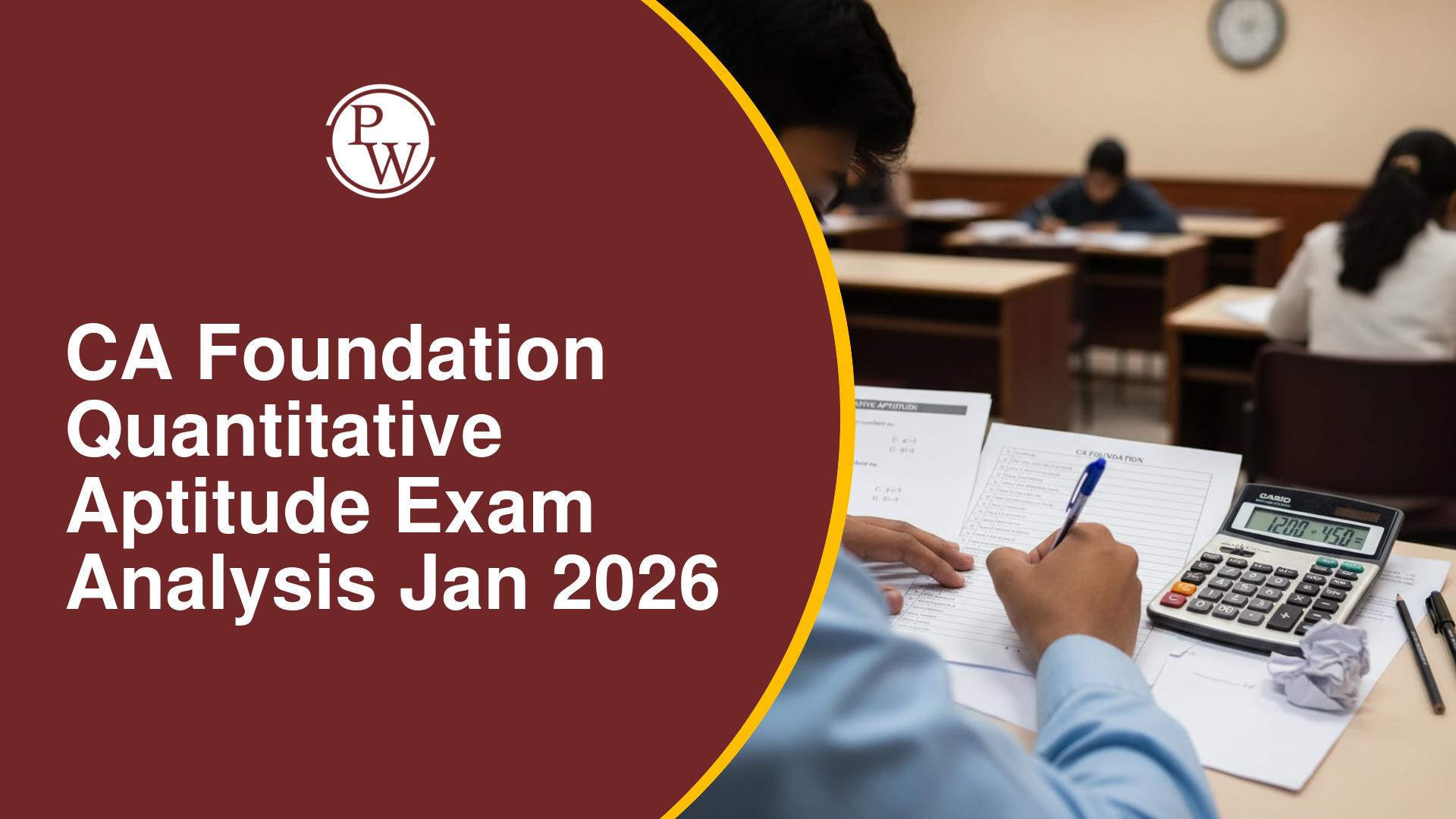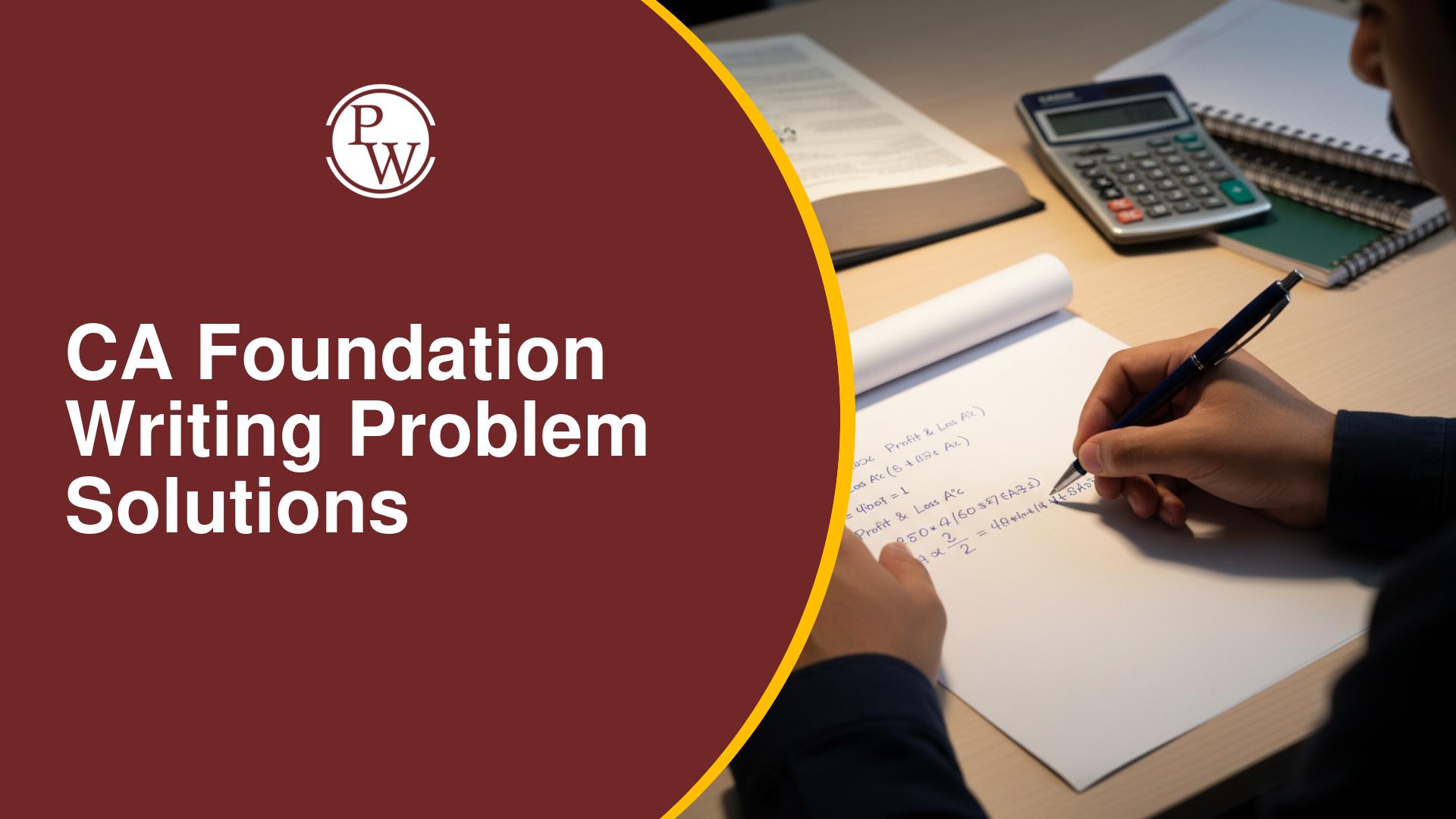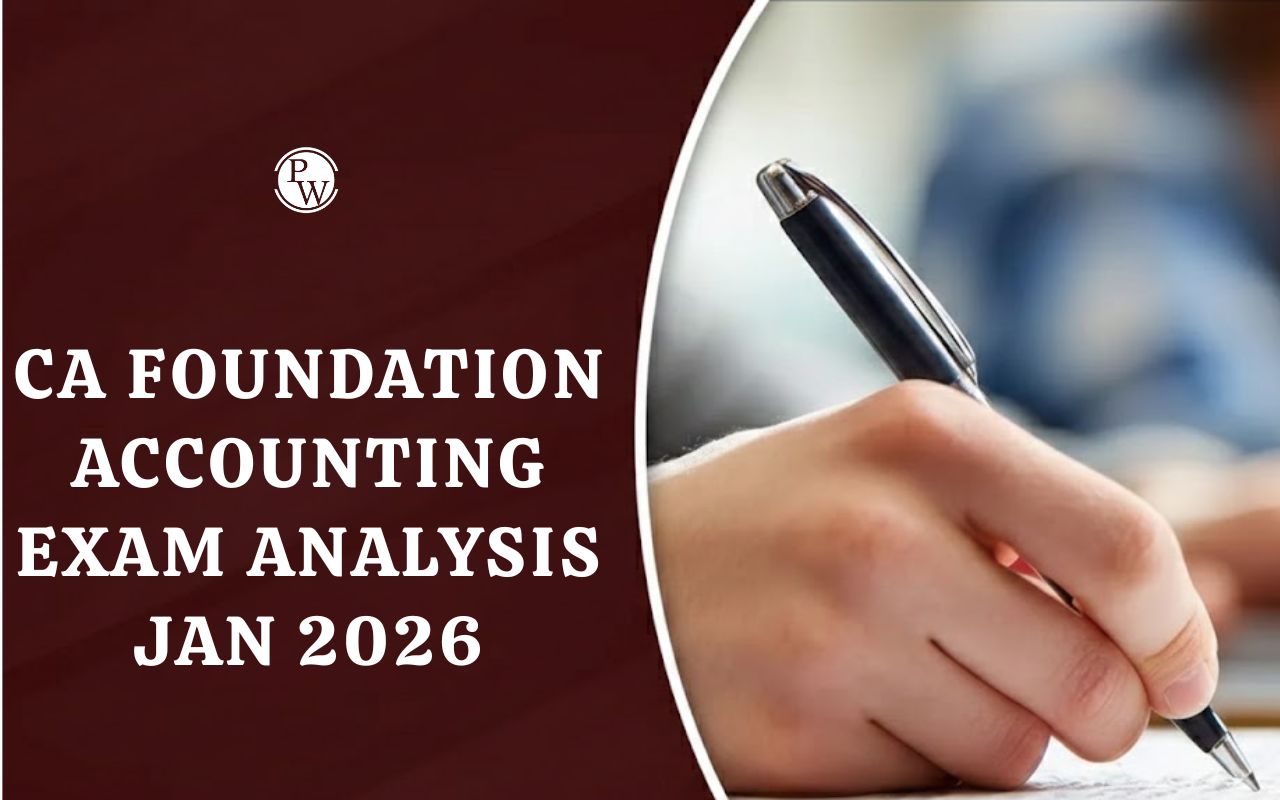
Income tax calculation plays a crucial role in financial planning. Knowing your tax liability helps you make informed decisions about tax-saving investments. It also gives you enough time to explore legal ways to reduce your taxable income. Additionally, being aware of tax regulations makes it easier to file returns on time, preventing penalties or delays.
That’s why understanding taxable income and deductions from gross total income is essential for financial management. Deductions from gross total income are also an important topic in the CA Exam.
What Are Deductions from Gross Total Income?
Deductions from gross total income refer to specific amounts subtracted from your total earnings before calculating taxable income. These deductions help reduce the portion of income on which tax is levied, ultimately lowering your tax liability.
Under Section 80 of the Income Tax Act, 1961, taxpayers in India can claim various deductions to save on taxes. Sections 80C to 80U outline different government-approved deductions applicable to individuals and businesses.
These deductions are important because
- They encourage investments and savings.
- They help taxpayers legally reduce their tax burden.
- They promote financial planning for long-term goals, including retirement.
To benefit from these deductions, individuals must make eligible investments within the financial year before the specified deadline. Being aware of these provisions ensures you maximize tax savings while complying with regulations.
Basic Rules for Claiming Deductions from Gross Total Income
The Income Tax Act outlines specific rules under Sections 80A and 80B regarding deductions from gross total income. These rules help taxpayers understand the eligibility criteria and procedures for claiming deductions.
1. Only the Assessee Can Claim Deductions
As per Section 80A(1), only the taxpayer (assessee) whose income is being assessed can claim deductions. The assessee must provide valid proof and necessary documents to support the claim.
2. Deductions Cannot Exceed Gross Total Income
According to Section 80A(2), deductions cannot be more than the total gross income. If, after claiming deductions, the net income becomes negative, no additional deductions can be availed. Gross income includes salary, rental income, interest, and dividends.
3. Deductions for Associations or Groups
Under Section 80A(3), if an Association of Persons (AOP) or Body of Individuals (BOI) claims a deduction, individual members cannot claim it separately. This rule prevents double benefits.
4. Submission of Supporting Documents
Taxpayers must present all relevant documents to the tax authorities to validate their deduction claims. Proper documentation strengthens the case for availing deductions.
5. Deductions Apply Only to Net Income
As per Section 80(AB), deductions are applied only to net income, which is included in the total gross income. The assessee must have received the income to be eligible for deductions.
6. No Deductions Allowed After the Due Date
If the tax return is not filed within the deadline, deductions under Sections 80IA, 80IB, 80IC, 80ID, 80IAB, and 80IE cannot be claimed. Timely filing is essential to maximize tax benefits.
Also Read: Acceptance of Deposits by Companies
Parts of the Deduction Process in Income Tax
The process of deducting from gross total income consists of two main parts:
Deductions with a ₹1,50,000 Limit
Certain tax-saving investments, payments, and savings qualify for deductions up to a maximum of ₹1,50,000. If the total eligible amount exceeds this limit, only ₹1,50,000 can be claimed.
Eligible Deductions under Section 80C
Only individuals and Hindu Undivided Families (HUFs) can claim deductions under this section for investments in:
-
Public Provident Fund (PPF): Encourages long-term savings with tax-free interest.
-
Employee Provident Fund (EPF): Contributions made by both employee and employer are eligible.
-
Life Insurance Premiums: Premiums paid for life insurance policies qualify for deductions.
-
Equity-Linked Savings Scheme (ELSS): A type of mutual fund offering tax benefits.
-
Unit-Linked Insurance Plans (ULIPs): Provides tax-saving investments along with life insurance.
-
Notified Mutual Funds: Government-approved mutual funds qualify for deductions.
-
Home Loan Repayment: Principal repayment and stamp duty are eligible for deductions.
-
National Savings Certificate (NSC): A government-backed investment with tax benefits.
-
Pension Fund (Section 80CCC): Annuity investments for retirement planning qualify for deductions.
National Pension Scheme (NPS) - Section 80CCD
-
Salaried employees can claim up to 10% of salary + dearness allowance.
-
Self-employed individuals can claim 10% of gross income.
-
An additional deduction of ₹50,000 is allowed under Section 80CCD(1B).
-
Employer contributions up to 10% of salary + DA are deductible under Section 80CCD(2).
Additional Deductions
Taxpayers can claim extra deductions to reduce their taxable income further. These include:
Medical Insurance & Health Expenses (Section 80D)
-
Individuals: Up to ₹25,000 for self, spouse, or dependents.
-
Additional ₹25,000 for parents' medical expenses.
-
For senior citizen parents, the limit increases to ₹30,000.
-
HUF members can claim up to ₹25,000 for any family member and ₹30,000 for senior members.
Medical Treatment for Disabled Dependents (Section 80DD)
-
₹75,000 for disability (40%-80%).
-
₹1,25,000 for severe disability (above 80%).
Treatment of Specified Diseases (Section 80DDB)
-
Up to ₹40,000 for individuals.
-
Up to ₹60,000 for senior citizens.
Higher Education Loan Interest (Section 80E)
-
Deduction available for interest paid on education loans.
-
No upper limit; valid for a maximum of 8 years.
Deductions for Disabled Individuals (Section 80U)
-
₹75,000 for disability (40%-80%).
-
₹1,25,000 for severe disability (above 80%).
Donations to Charitable Organizations (Section 80G)
-
100% Deduction: Donations to the Prime Minister's Relief Fund, National Defense Fund, etc.
-
50% Deduction: Donations to National Children's Fund, Rajiv Gandhi Foundation, etc.
House Rent Deduction (Section 80GG)
For taxpayers without HRA benefits, the lowest of the following can be claimed:
-
₹5,000 per month
-
Rent paid - 10% of total income
-
25% of adjusted total income
Scientific Research & Rural Development (Section 80GGA)
Donations for scientific research or rural development qualify for deductions.
Political Party Contributions (Section 80GGC)
Donations to registered political parties are fully deductible.
Savings Interest Deduction (Section 80TTA)
Up to ₹10,000 deduction on interest earned from bank savings accounts.
Royalty on Patents (Section 80RRB)
-
Up to ₹3,00,000 deduction for patent royalty income earned by Indian residents.
By understanding and utilizing these deductions, taxpayers can effectively reduce their taxable income and save on taxes. Always consult a tax professional for personalized tax planning.
| Also Check: | |
| Strategic Management | Amalgamation of Companies |
| Correlation and Regression | Probability |
| Market Failure | Statistics |
Deductions from Gross Total Income FAQs
What are deductions from gross total income?
Which section of the Income Tax Act covers deductions?
What is the maximum deduction allowed under Section 80C?
Can I claim deductions if I miss the tax filing deadline?










